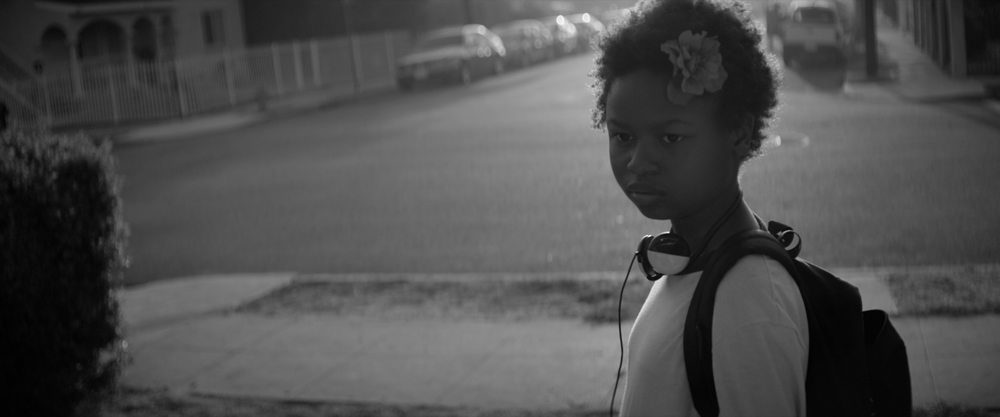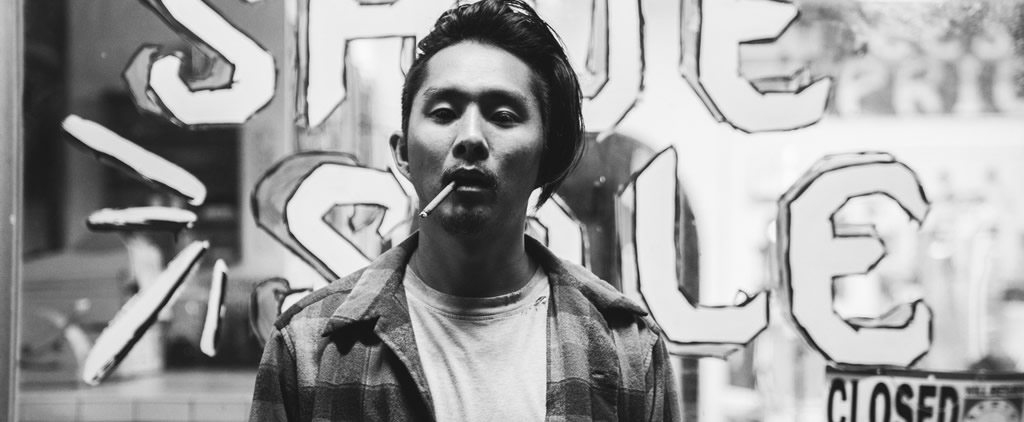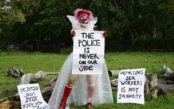[dropcap style=”font-size:100px;color:#992211;”]S[/dropcap]et on the first day of the 1992 Los Angeles riots, Justin Chon’s sophomore feature packs a punch as a frank and emotive small-scale representation of what led to the unrest, and its consequences. A jury had acquitted four police officers for their beating of Rodney King despite widely broadcast and clear video evidence, sparking a six-day spate of violence, arson, and looting. Gook tells the story from the point of view of the Korean community, which saw the majority of the violence.

The film opens with an introduction to Kamilla, a young black girl. She is cheeky and bold, skipping school to hang out at the local shoe store, owned by Eli and Daniel, two bickering Korean-American brothers. Eli is the more serious of the two, struggling to make the business work and frustrated with Daniel, who gives shoes away and dreams of being an R&B star. It’s an unusual friendship but the brothers are fond of their unofficial shop assistant, while Kamilla, whose mother died when she was very young, feels that she belongs. It’s clear that the local black community harbours a strong dislike for Koreans—Kamilla’s brother in particular despises Eli and Daniel, forbidding the friendship—however in this small bubble, there is racial harmony. In the background, TV snippets tell the unfolding story of the cops’ acquittal, and the beginning of the violence and looting.
“Look around you. Ain’t nobody watching over us, it’s just us.”
Interracial tensions are highlighted very quickly. Eli’s introductory scene sees him jumped by some Hispanic men due to his race, an incident that appears to be par for the course—in fact the Koreans seem to be at the lowest rung of the class ladder, targeted by other ethnic minorities—while Kamilla has a gun pulled on her by Mr. Kim, an old Korean who runs the liquor store across the road. The latter is a clear reference to the 1991 Latasha Harlins case, which saw a black teenage girl shot and killed by a Korean store owner; the perpetrator received a lenient sentence, causing heightened hostility between the communities. And yet, despite this underlying harshness, the film is often light, its playful moments easing the strain of its everyday racism; David So, who plays Daniel, exploits his comedic chops to great effect. The balance largely works—the edit is at times patchy—making for all the more impact in the film’s explosive moments.
Aside from the racial conflict, the message seems to be that it’s a hopeless life for ethnic minorities in impoverished areas. Should one make efforts to improve their life, others will take what they can. The black-and-white shoot contributes to this visceral feel. Ultimately the film descends into melodrama, which is a little predictable. Nevertheless, Gook is an impressive effort from Chon.
Gook is available on DVD from 9 April
[button link=”http://amzn.eu/9Do3Ngn” newwindow=”yes”] Gook on Amazon[/button]

Naila Scargill is the publisher and editor of horror journal Exquisite Terror. Holding a broad editorial background, she has worked with an eclectic variety of content, ranging from film and the counterculture, to political news and finance.





















